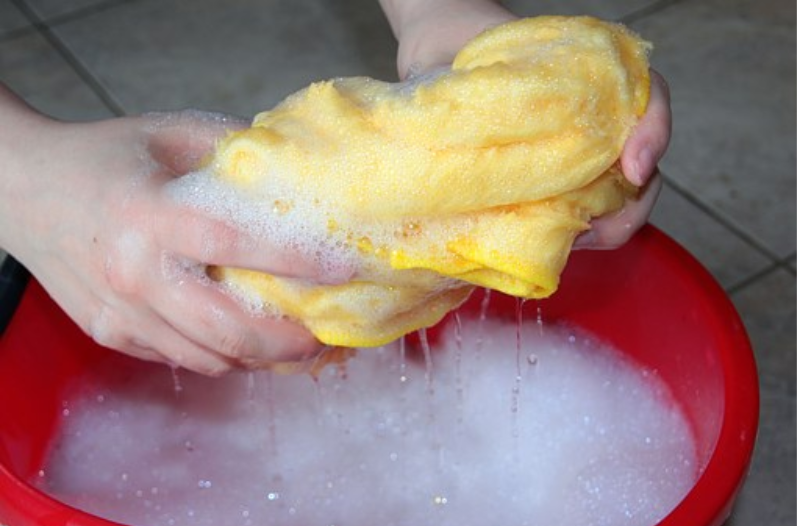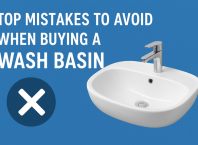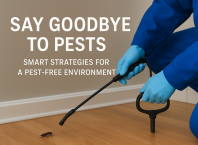Mold helps decompose organic dead matter, otherwise the world would be covered with piles of unwanted substances. However, despite its usefulness, most people consider it more of a nuisance than of benefit. Mold is said to be an eyesore and a cause of several health issues including allergies, asthma, respiratory infections and pulmonary hemorrhage among others. According to health experts, a majority of mold release mycotoxins- a toxic secondary metabolite responsible for such infections.
What’s more, people dwelling in mold-infested spaces have to contend with musty odors, poisonous mushrooms and damaged property.
Mold is not confined to grow in specific surfaces, it may appear in totally unexpected places e.g on clothes, food, paper, wood, walls, floor and roofs among others. Before finding out how to get rid of mold it is important to first establish how it is formed so as to know what to avoid and prevent re-occurrence.
Contents
What Causes Mold?
Mold thrives in areas that are constantly damp, have high humidity levels (above 60%), are dark and with ample oxygen supply.
At home, you are bound to find it in spaces with Leaking pipes and roofs, blocked gutters, dark & with poor ventilation, AC drain leaks, plumbing leaks, collected pools of water and poor foundations that allow water leak in.
How can you Remove Mold?
Depending on how serious the situation is, you can either choose to do it yourself or hire a professional. DIY measures apply if you only notice a few patches of mold that seem controllable.
Below are five measures that can be applied when removing it:
1. Clean the Affected Area
Ensure you have protective gear before embarking on cleaning out the area as mold can be dusty and cause allergy. A breathing mask/respiratory gear, goggles, gloves and protective boots are considered ideal. You may also want to put on old clothing that you don’t care much about- in case anything gets on them.
For best results clean using any of these easily available agents :
- Vinegar– Put either white or apple cedar vinegar into a spray bottle and sprinkle on the affected area then wipe off. Vinegar should be used on non-porous surfaces.
- Baking Soda– Add 4 table spoons of baking soda to half a liter of water and properly stir. Spray the concoction on the intended area, then rinse it off. Baking soda is applicable on porous surfaces.
- Bleach – For every one cup of bleach add three litres of water. You can either spray or apply the solution on the affected area using a sponge. Note: Bleach usually gives off toxic fumes during use- keep safe.
- Borax– Mix a cup of borax with three litres of water and spray on the affected area then rinse off.
- Ammonia– Mix an equal amount of ammonia with water and spray onto the mold infested area.
To prevent future growth, after cleaning using these agents, it is advisable to spray and leave some on the affected area.
2. Vacuum and scrub off
If the mold appears to be in layers you can cut it out using a utility knife or gently scrub it off. Next, use a brush to remove any that may still be holding on. You can then vacuum the area with a vacuum cleaner that either has a HEPA filter or an extra long hose that can be kept outside; this prevents mold from spreading.
Sometimes, mold may only be loosely attached onto the affected surface, if that’s the case you do not need to cut or scrape it off, vacuuming alone is enough.
3. Use Commercial Mold Removers
There are several mold removing products available in the market today. Most of them easily dissolve mold stains and are marked safe for use. You are only required to check the manufacturer’s specifications to find out how to use them.
Such products can be obtained from physical retail shops or online stores. To find out more, search the internet for commercial mold removing products.
4. Properly Aerate the area
Mold flourishes in poorly ventilated and dark areas. Whenever possible, open windows and let in sunlight and fresh air; these two naturally suffocate molds. Alternatively, install air conditioners to help regulate air flowing within the house.
5. Get Expert Help
In case of larger areas, persistent mold or hidden mold problems, it is recommendable to hire an expert to help effectively get rid of it. Generally, professionals offer relevant skills, experience and equipment suitable for the problem at hand.
Getting expert help is especially applicable if you suspect mold was formed due to water seeping into the foundation. Mostly, faulty foundations are caused by the house sinking (settling) at one end or several places. To solve this, structural repairs such as house leveling ought to be done as soon as possible. Foundation drainage repairs will also come in handy as they help direct stormwater away from the foundation. Look for a structural engineer or qualified person who can offer such professional foundation repair services.
Keep Molds Away…
“Prevention is better than cure”.
Molds cause damage to property which can be quite expensive to repair. To avoid going through the trouble of getting rid of molds frequently, it is advisable to ensure all surfaces are always kept dry since moisture is the greatest contributor to its growth. Inspect affected areas for signs of leaking pipes, flooding, standing pools of water, wet floors & carpets and tackle such issues appropriately. Other useful tips include :
- Keep bathroom windows open when showering
- Ensure all your clothes are dry before storage
- Regularly clean under carpets and behind furniture
- Install appropriate insulation for walls prone to mold infestation.
- Seal vulnerable wood with pigmented shellac or oil-based primer.
- Repaint affected walls using mold inhibiting paints.
- Direct draining water away from your house.
- Monitor humidity levels within your house especially during cold seasons.
- Conduct regular thorough inspections of your house to ensure everything is in good working order.
That’s it! Use the above measures and tips to remove and keep away molds.













